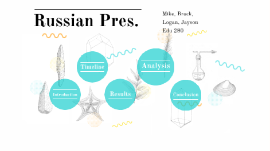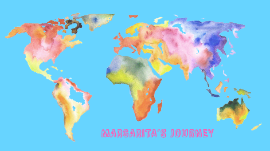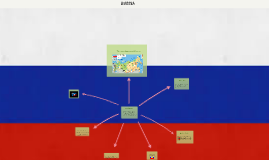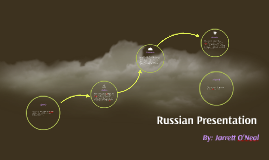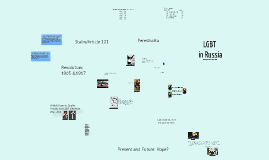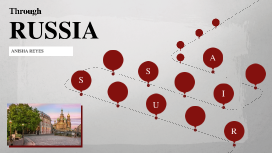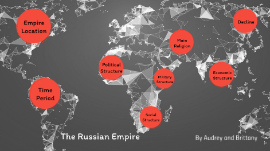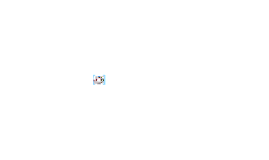Russian Presentation
Transcript: Through RUSSIA ANISHA REYES A S S I U R Introducing Russia Russia, a nation that extends through a wide expanse of eastern Europe and northern Asia. Russia had become an independent nation after the Soviet Union division in December 1991 after the preeminent republic of the Union of Soviet Socialist Republics Russia's a superlative country. It occupies almost twice the territory of Canada, the second largest by far, the world's biggest nation. It covers eleven time zones, and contains a wide array of climate and land types, ranging from deserts and semi-arid steppe to dense woodland and the Arctic tundra. Russia includes the Volga River and its main lake, Ladoga, which is Europe's longest river. Russia is also home to the deepest lake in the world, Baikal, and it has the northern and southern poles that have registered the lowest world temperature. GOVERNMENT The period of Russia as a democracy is brief. The very first election of the world, in 1917, was immediately overturned by the Bolsheviks, and it was not until the 1991 election of Boris Yeltsin that democracy occurred. Russia is an union of 86 monarchies, regions, divisions and counties, all governed by the Moscow government. The Head of State shall be the President chosen by the people. The Russian parliament has been governed by the United Russia Party for more than a decade, most notable for not possessing a set long-term agenda. A semi-presidential structure is one in which there is a prime minister who heads the legislature and holds some power, but there is also a president who plays an administrative role in the government. Called a "catch-all party," the party refers to various political problems or personalities when they emerge, or on a case-by-case basis. The party formally describes itself as a Russian Conservative Party, but the ideological significance of the party is vague except in its opposition to the rival Communist Party. ECONOMY The economy is built on a large supply of natural resources, including crude, coal, iron ore, gold and aluminum. After the advent of the Federation in the 1990's and the fall of Communist leadership, Russia has introduced many market-oriented reforms; the main change has been to deregulate assets nationalized under the Soviets. Withstanding everything, the Russian government still plays a significant role in steering the economy of the region. The Kremlin maintains near control of seemingly private businesses. MOSCOW Moscow has played a crucial role in Russian history ever since it was documented in the chronicles of 1147. In the late 13th century, it became the capital of Muscovy (the Grand Principality of Moscow), which is why the inhabitants of Moscow are known as Muscovites. Today, Moscow is not only Russia's political base, but also the most populated metropolitan in Russia, as well as its industrial, cultural, science and educational capital. PEOPLE & SOCIETY Russia is known all over the world for its intellectuals and musicians, including authors such as Leo Tolstoy and Fyodor Dostoevsky, composers such as Piotr Ilyich Tchaikovsky, and dancers such as Rudolf Nureyev. There are 120 ethnic groups in Russia that speak more than 100 languages. Approximately 80 per cent of the Russians trace their ancestry to the Slavs who arrived in the country 1500 years ago. Other large groups include the Tatars, who arrived with the Mongolian settlers, and the Ukrainians. NATURE As big as Russia is, a huge proportion of biodiversity and creatures are home to this is no surprise. The forests, steppes and tundrums of the area help compensate many exotic species, such as the Asiatic black bears, snow leopards, polar bears, and small, rabbit-like mammals called pikas. The first national parks were built in Russia in the 19th century, but many areas in the world have been plagued by decades of unchecked emissions. Presently, roughly one percent of Russia's land area, or zapovedniks, is secured in preserves. HISTORY Russia was a major player in international relations during the post-World War II era, wrapped up in a Cold war battle with the United States. In 1991, with many other former Soviet Republics after the disintegration of the Soviet Union, Russia entered a loose alliance, the Commonwealth of Independent States. Immediately after the 1917 Russian Revolution, Russia became a Union Republic in 1922. While Soviet-style communism has collapsed and Soviet Union has brought profound political and economic changes, including starting to form a big middle class, the Russians have endured a generally poor economy and high inflation for much of the post-Communist period, along with a whole set of social ills, which have significantly decreased life expectancy. Ivan IV, the Moscow ruler became the first Russian tsar to force the Mongols out of Kiev and bind the region together. It fought alongside the United States during the Second World War, but soon after the 1945 war ended, relations between the two powers and their STATE






